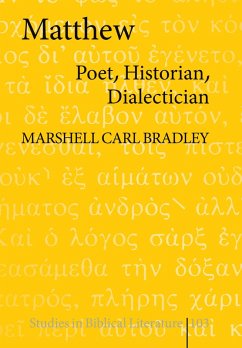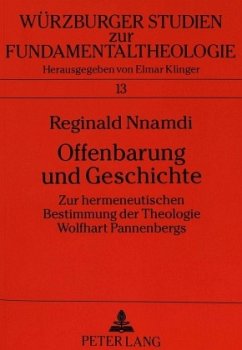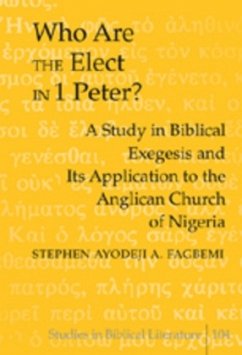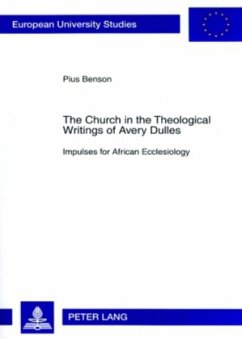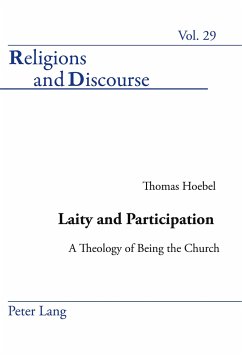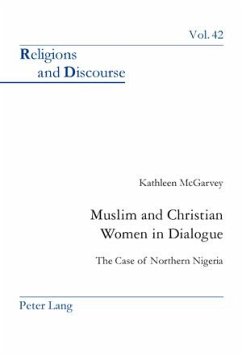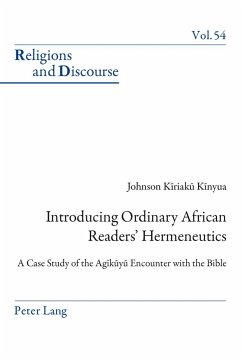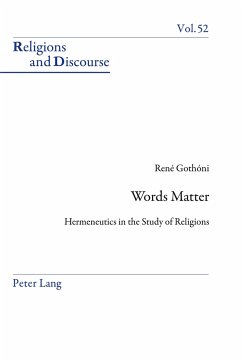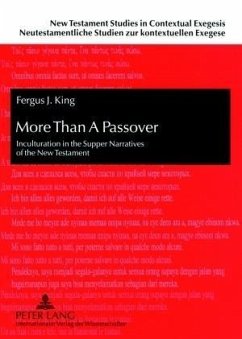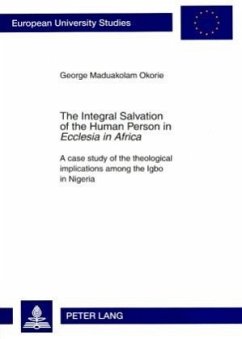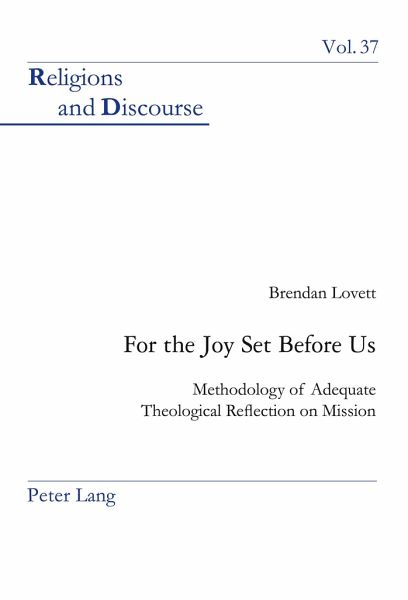
For the Joy Set Before Us
Methodology of Adequate Theological Re¿ection on Mission
Versandkostenfrei!
Versandfertig in 6-10 Tagen
73,25 €
inkl. MwSt.

PAYBACK Punkte
0 °P sammeln!
Modern developments in both science and history challenge us to a far greater degree of empiricism than has been traditionally considered necessary in the study of theology. Any attempt to move in this direction can be significantly helped by Bernard Lonergan's breakthrough discovery of the notion of functional specialties in 1965. The strategy of this book is to make use of this discovery and provide a theological reflection on mission appropriate to the present age. The author begins with an insight available from biblical research but absent from current theologies of mission. This is the g...
Modern developments in both science and history challenge us to a far greater degree of empiricism than has been traditionally considered necessary in the study of theology. Any attempt to move in this direction can be significantly helped by Bernard Lonergan's breakthrough discovery of the notion of functional specialties in 1965. The strategy of this book is to make use of this discovery and provide a theological reflection on mission appropriate to the present age.
The author begins with an insight available from biblical research but absent from current theologies of mission. This is the general recognition that the texts concerning a universal mission are in fact an instance of retrojection. Building on this through an interpretation of Lonergan's functional specialties of interpretation and history, he unfolds the startling implications for grasping the central creative significance of the 'word of God'. As the argument transfers from one specialty to the next, it moves towards ever-richer empiricism, culminating in the specialty of communications.
Here the creativity which will be needed to address faithfully the message of Jesus to our contemporary world in all its complexity becomes apparent.
The author begins with an insight available from biblical research but absent from current theologies of mission. This is the general recognition that the texts concerning a universal mission are in fact an instance of retrojection. Building on this through an interpretation of Lonergan's functional specialties of interpretation and history, he unfolds the startling implications for grasping the central creative significance of the 'word of God'. As the argument transfers from one specialty to the next, it moves towards ever-richer empiricism, culminating in the specialty of communications.
Here the creativity which will be needed to address faithfully the message of Jesus to our contemporary world in all its complexity becomes apparent.





